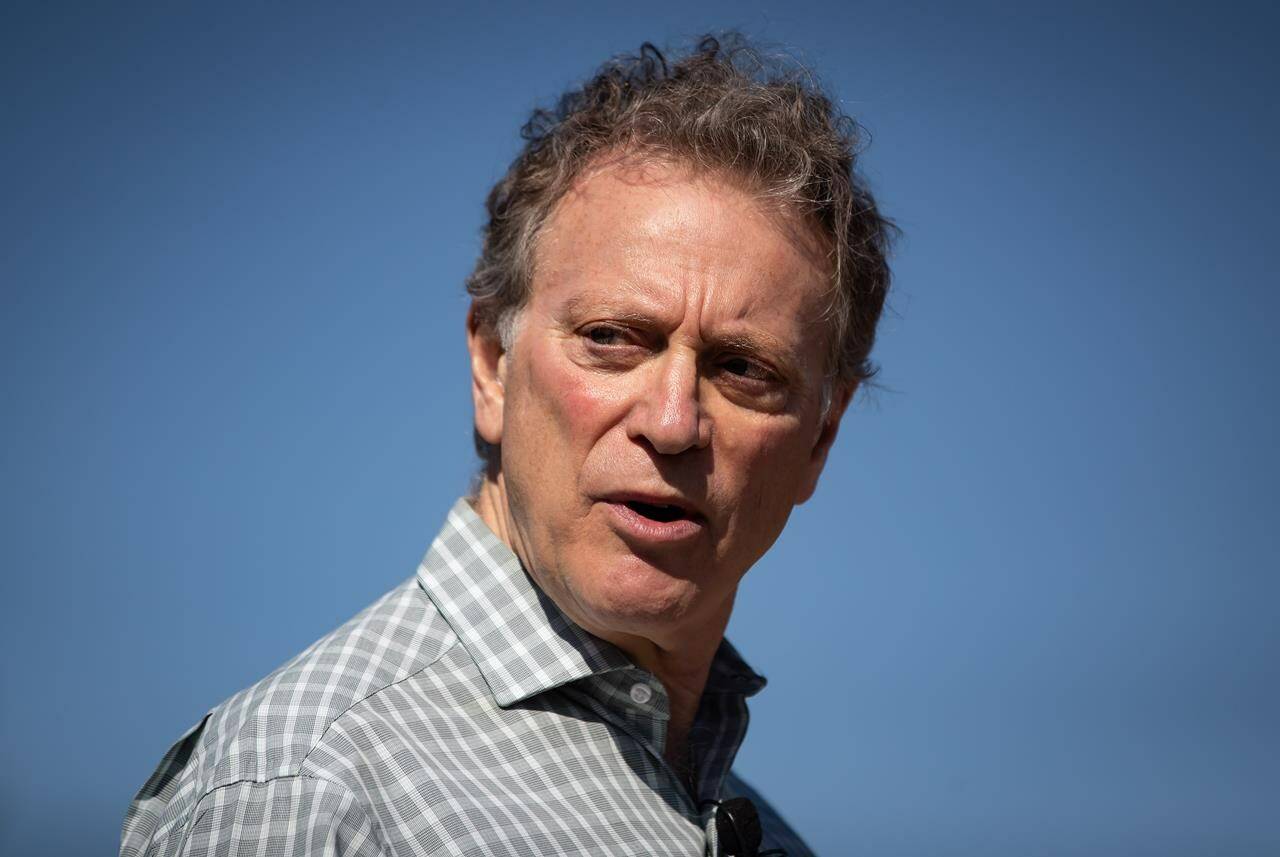Environment Minister George Heyman acknowledged affordability concerns among British Columbians in promising help, but also warned against turning away from carbon taxation.
“People in B.C. are also concerned about the very real costs of the climate crisis, which we’ve seen here with fires, floods, droughts and extreme heat,” he said in a statement to Black Press Media. “We are determined to reduce costs for people while continuing to move forward on climate action, so our kids and grandkids aren’t paying a steeper price in a world where extreme weather events have become regular events.”
Heyman made these comments in response to a poll that shows declining support for the provincial carbon tax.
The Innovative Research Group poll conducted for the Canadian Taxpayers’ Federation shows almost half of surveyed British Columbians oppose the idea of a carbon tax.
Overall support has been declining. Whereas 38 per cent strongly or somewhat supported the idea of a carbon tax in April 2023, that figure has dropped to 25 per cent. Those who somewhat or strongly oppose the idea has risen to 49 per cent in October from 35 per cent in April.
RELATED: Support for B.C.’s carbon tax fading, poll shows
The poll is part and parcel of an intensifying debate about the future of the carbon tax with groups inside and outside the legislature questioning the affordability and efficacy of the tax. It currently sits at $65 per tonne of CO2 and is scheduled to reach $170 per tonne by 2030.
“People are facing significant affordability issues and we’re focused on it every day, and we agree British Columbians need help with costs,” Heyman said.
He added that his government has already taken several steps to address affordability, including eliminating MSP premiums, reducing child care costs, cutting ICBC rates, lowering BC Hydro costs and boosting family benefit payments, while signaling additional relief.
“We also are strengthening our low and middle income Climate Action Tax Credit, putting more money back in people’s pockets, and by 2030 most people will get back more than they pay,” he said.
That statement refers to the provincial government’s promise to help offset the scheduled carbon tax increase by raising the climate action tax credit. According to government, a significant but unquantified majority of British Columbians will receive more back than what they pay. Government itself has set the goal of reaching 80 per cent of all households through the credit. Under changes announced in the 2023 budget, an individual can receive up to $447 per year while a family of four can receive up to $893.50 per year.
Heyman also criticized plans by provincial opposition, specifically BC United, to potentially cut the provincial carbon tax entirely. Such a move would benefit big business, while increasing costs for British Columbians, he said.
RELATED: Hope and fear: 2023-2024 B.C. budget draws range of reactions
RELATED: BC United promises to remove provincial taxes for cars and home heating
@wolfgangdepner
wolfgang.depner@blackpress.ca
Like us on Facebook and follow us on Twitter.

